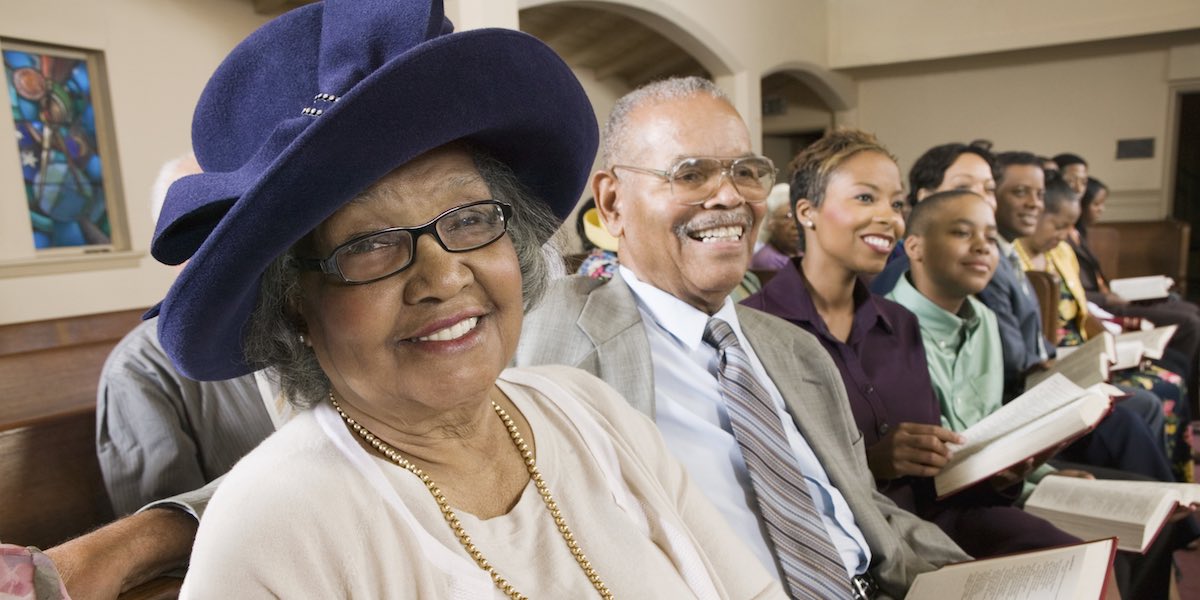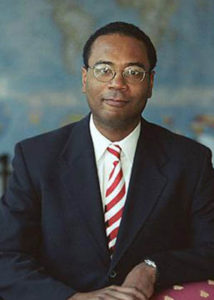
25 Jun 2018 Institutions of Faith are Critically Important to Black Progress, Black Leaders Say
Project 21 Releases Plan to Reinvigorate Black Churches, Including Tax Incentives for Supporting Church Day Care and Schools, Bans of Race-Based Abortions and Ending Federal Restrictions on Church Speech
Washington, D.C. – Black churches have long been the most important institutions in the black community and reinvigorating them is critically important to further black progress, according to the black leadership network Project 21.
Project 21 is urging policymakers to create Tax Credit Scholarships that would allow individuals and businesses to earn tax credits for donations in support of church-sponsored daycare and K-12 educational programs. This recommendation – one of seven faith-related recommendations it Project 21’s “Blueprint for a Better Deal for Black America” – would help reinvigorate black churches that are facing the same decline in youth participation as mainline churches.
The Blueprint is Project 21’s 57-point plan for removing barriers that block blacks from empowerment and for ensuring they have their chance of attaining the American dream.
Project 21 also recommends repealing the Johnson Amendment, which prohibits certain nonprofits such as churches from expressing opinions on candidates, and banning abortions that are conducted exclusively for ethnicity selection purposes.
“Churches played a vital part in protecting and nurturing the black community during the perils of slavery, the uncertainties of Reconstruction and the promise of the civil rights movement. They strive to this very day to hold black families together,” said Project 21 Co-Chairman Council Nedd II, an archbishop and rector of St. Alban’s Anglican Church in State College, Pennsylvania. “Government must recognize and promote the good work of black churches, and Project 21’s recommendations can reinvigorate these religious organizations amidst popular culture’s assault on faith.”
“Abortion is a billion-dollar enterprise. Planned Parenthood and other ‘family planning’ providers profit handsomely from America’s silent genocide,” added Project 21 Co-Chairman Horace Cooper, a former professor of constitutional law and senior counsel to congressional leadership. “But making a buck hasn’t stopped Planned Parenthood from sticking with its founder’s goals to go after blacks and the poor. Planned Parenthood clinics specifically locate near the neighborhoods of poor black women and as a result have achieved a devastating record: they’ve managed to kill the babies of five times as many women of color than whites. This targeting by race must end. No unborn child should ever lose his life because of the color of his skin.”
Project 21 members say government policies should strengthen faith-based organizations instead of diminishing the role of religion in society, arguing that churches have long been the most important institutions, and consistent forces for good, in the black community.
The powerful role of the church in the black community can be seen in its ongoing efforts to keep black families intact – offering spiritual aid, food and financial assistance, nursery care, education and youth activities in safe environments. With 66 percent of black children raised in households with just one parent, churches also provide positive male role models.
Since church participation has decreased, particularly among black youth, Project 21 members see a compelling need for government policies that reinvigorate the role of the church in tending to the needs of black communities.
There are seven specific proposals in Project 21’s Blueprint designed to give black Americans a better deal by raising the position of the church:
- Ban abortions performed exclusively on the basis of the ethnicity of a fetus.
- Ban the sale of fetal body parts entirely.
- Establish federal Tax Credit Scholarships to allow individuals and businesses to receive tax credits for donating to nonprofits, including churches, that provide private school tuition assistance for low-income and at-risk youth, whether in the K-12 system or in preschools or daycare centers.
- Create a tax credit for parents and other family members who pay fees and tuition for preschool or K-12 education.
- Encourage religious leaders to participate in the activities of local schools and to serve on local advisory boards of federally-funded social service offices in order to give input regarding policies that limit faith-based leaders from participating in the provisioning of social services.
- Repeal the Johnson Amendment, which prohibits certain nonprofits – including churches – from expressing opinions on candidates for public office.
- Dedicate one day in February (Black History Month) for a national proclamation honoring religious leaders and laymen for their role in achieving civil rights for all Americans.
“Clergy should be allowed to provide insight in areas such as public schools and politics. Churches provide many Americans with a much-needed spiritual and educational core and should therefore be afforded every right to discuss pressing issues,” said Project 21 member Stone Washington, a senior at Clemson University. “In addition to repealing political speech restrictions placed on churches by the Johnson Amendment, the abortion culture’s racist targeting of unborn blacks in troubled communities must also come to an immediate end.”
Every Monday between now and July 9, Project 21 will release the remainder of its policy recommendations from the “Blueprint for a Better Deal for Black America” that cover 10 specific subject areas in all. The tentative release schedule is as follows:
Promoting Self-Determination (July 2)
Ending Excessive Regulation (July 9)
Project 21 leaders have been briefing key staff at the White House and with congressional leadership about the 57 policy ideas – covering education, criminal justice, economics and more – that are available in its “Blueprint for a Better Deal for Black America.”
Project 21, a leading voice of black conservatives for over 25 years, is sponsored by the National Center for Public Policy Research. Its members have been quoted, interviewed or published over 40,000 times since the program was created in 1992. Contributions to the National Center are tax-deductible and greatly appreciated, and may be earmarked exclusively for the use of Project 21.
Founded in 1982, the National Center for Public Policy Research is a non-partisan, free-market, independent conservative think-tank. Ninety-four percent of its support comes from some 60,000 individuals, less than four percent from foundations and less than two percent from corporations. Sign up for email updates here.
Follow Project 21 on Twitter at @Project21News for general announcements. To be alerted to upcoming media appearances by Project 21 members, follow our media appearances Twitter account at @NCPPRMedia.
-30-






